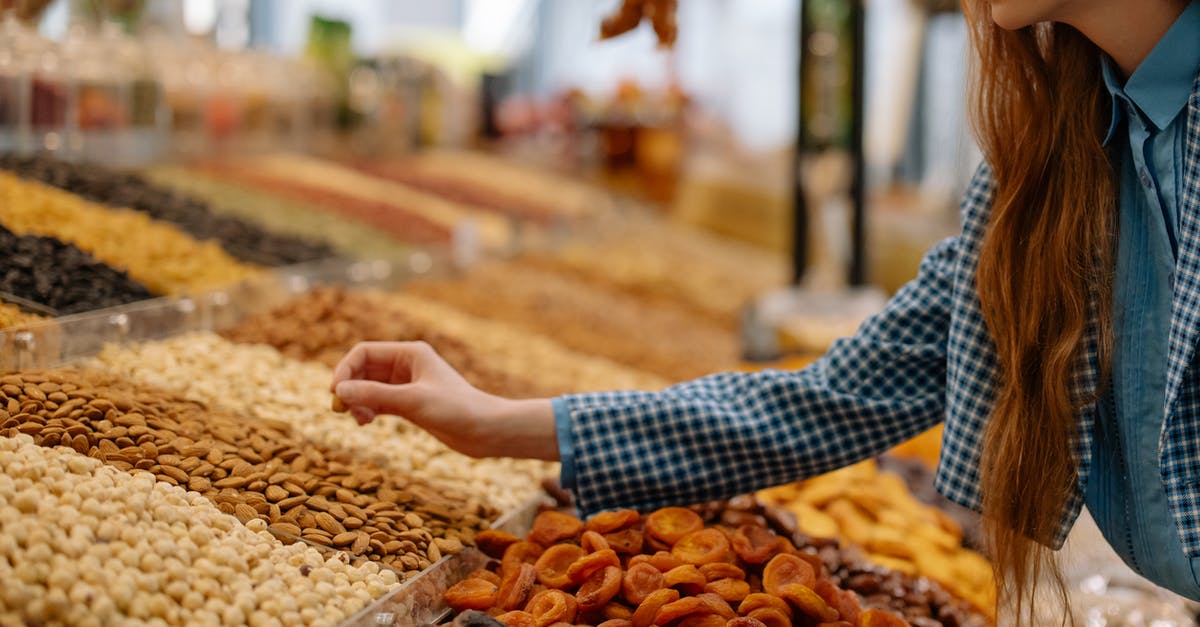Advice on bulk buying nuts

I am thinking about buying nuts in bulk, specifically hazelnuts, almonds and/or walnuts. Are there any considerations regarding:
- Type of nut - i will buy straight from farmers so i have to hope they have been stored appropriately. Which type of nuts are less likely to go off if not stored correctly?
- Storage once i get them - cool dry place or maybe even freeze them?
- Roasting - is it ok (flavourwise) to roast a large batch at once and eat over a period of a month or more?
I intend to start with buying small quantities of about a kilo, preferably without shells, from this site that connects farmers and customers.
Best Answer
Some of the main concerns with storage and consumption of raw nuts are (in no particular order)
- The presence of Salmonella
- The oil in the nuts becomes rancid
- The presence of insects
According to a food safety pamphlet put out by UC Davis,
Because of their association with two raw almond outbreaks, California almonds sold in retail stores must be treated in some way to eliminate Salmonella. Commercial blanching and roasting processes are examples. Almonds that are not roasted or blanched may be treated with a lighter steam or heat treatment or may be treated with the gas propylene oxide or other approved process.
They also note that dry foods like nuts are not a common source of harmful bacteria. I'm not sure of how much of a concern this should be. Further research may be required. Also note that "Refrigeration and freezing do not destroy this bacteria. The presence of harmful bacteria cannot be determined by sight, smell, taste, or texture."
The oil in nuts tends to start to go off after a few months at room temperature. This won't make the nuts dangerous to eat, but they won't taste good. Things like temperature and humidity will affect the speed at which the nuts go off. Unshelled nuts will last longer at room temperature (and in general) than shelled nuts.
Nuts in the refrigerator should be good for up to one year. In the freezer, for two years.
The other benefit of freezing nuts is that it will kill insects and their eggs.
If you want to store nuts obtained from a backyard orchard at room temperature, you will need to first freeze the nuts at 0°F (-18°C) for 48 hours to kill insect pests and their eggs and prevent them from destroying your harvest. Freezing the nuts is not necessary if you intend to store the nuts in the refrigerator. You can also use dry ice ( frozen carbon dioxide) to destroy insect pests prior to storage.
It's possible that the farmers will have treated the nuts with one of these methods before selling them. Ideally, you'd be able to find this out from the farmer. Laws in your area may demand such procedures anyway.
Pictures about "Advice on bulk buying nuts"



How do you keep nuts fresh in bulk?
To keep them fresh for much longer, store the containers in the refrigerator or the freezer, where nuts and seeds are cold and happy and unaffected by fluctuating kitchen temperatures. In general, they'll stay fresh for up to six months stored in the refrigerator and for up to one year stored in the freezer.What should I look for when buying nuts?
Avoid buying those with shells that show cracks or holes. Nuts should feel weighty for their size and not rattle in the shell, which indicates that the nuts are plump and not shriveled. When buying shelled nuts, once again, look for uniformity, good color, and plumpness.Which nuts sell the most?
In 2018, the global consumption of peanuts amounted to approximately 42.6 million metric tons, making peanuts the most popular nut for consumption in the world.How do you store nuts for a long time?
For storage up to six months, store in the refrigerator and keep away from onions and other strong-smelling foods as nuts tend to take on the smell of things around them. For longer term storage, the freezer will keep nuts fresh up to a year. As the water content is low, freezing won't affect the taste.Buying Nuts in Bulk | Zero Waste Grocery Shopping Tips
Sources: Stack Exchange - This article follows the attribution requirements of Stack Exchange and is licensed under CC BY-SA 3.0.
Images: cottonbro, Amina Filkins, Anna Nekrashevich, Kampus Production
